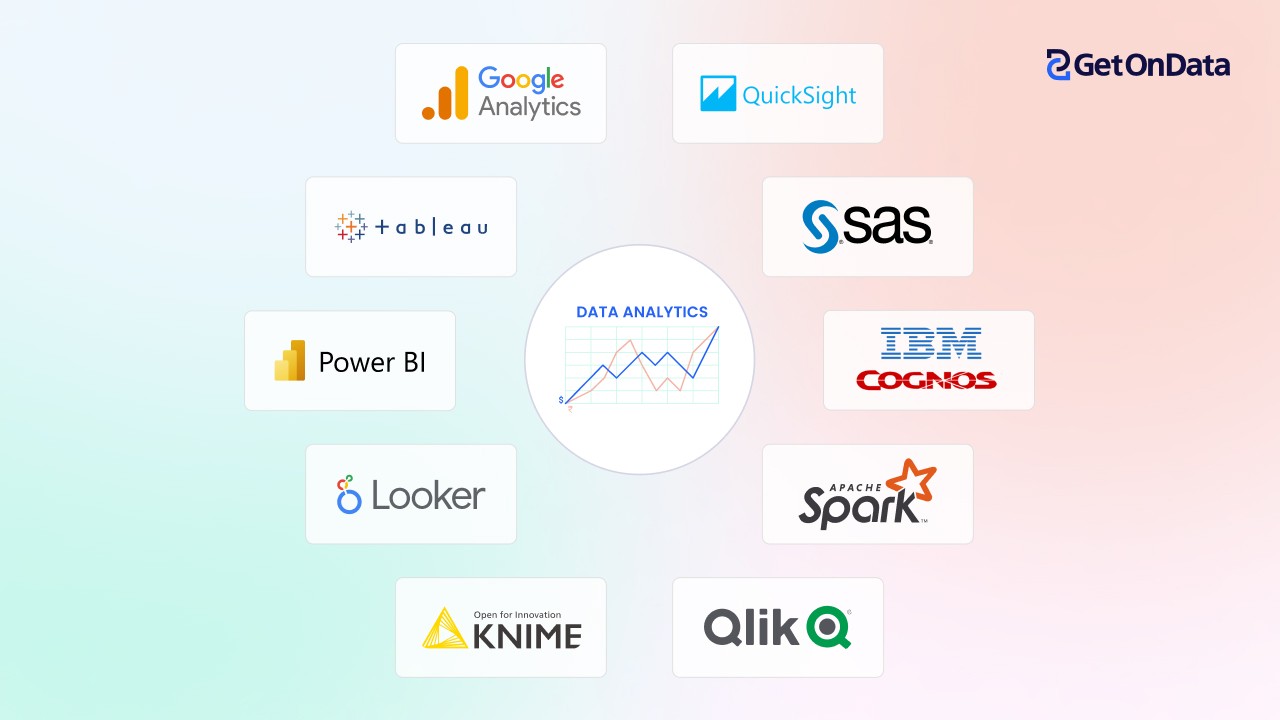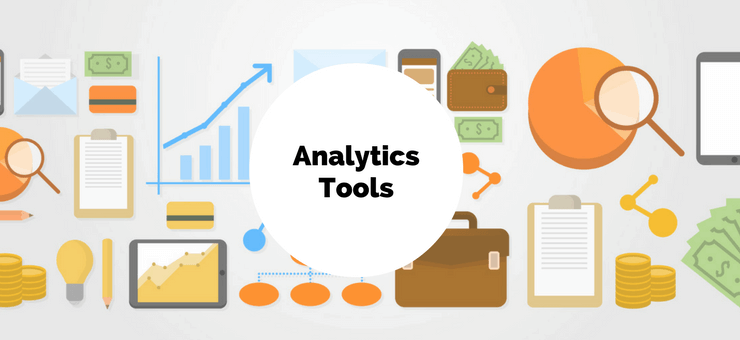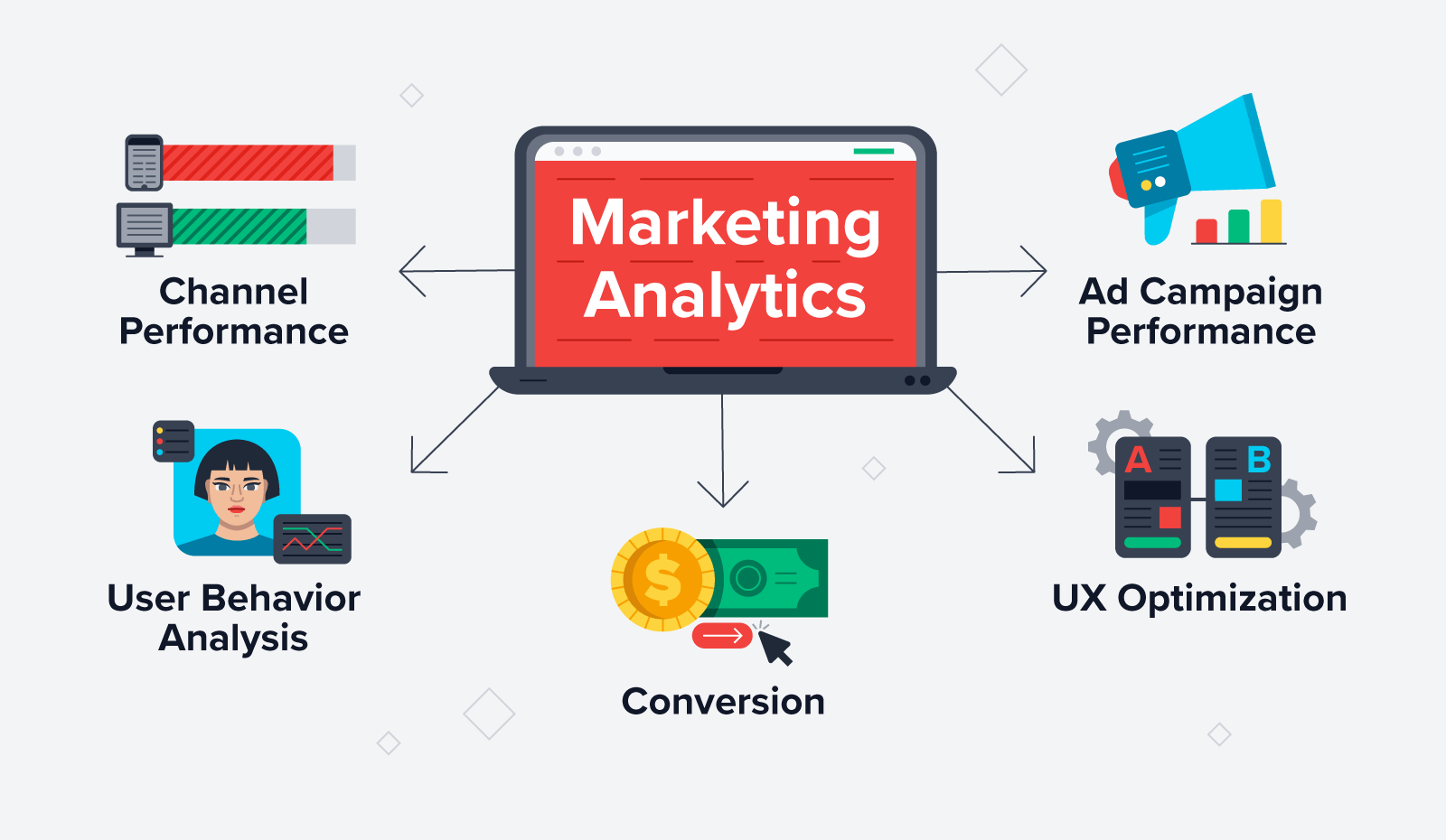Why Organizations Thrive with Data-Driven Analytics Approaches
Why Organizations Thrive with Data-Driven Analytics Approaches
Blog Article
Optimize Development: How Analytics Drive Better Techniques
By using information insights, companies can fine-tune their operational approaches, anticipate market changes, and boost consumer involvement. The challenge exists not only in accumulating data however in properly translating it to drive tangible results.
Understanding Information Analytics
Data analytics is an organized computational evaluation of data that enables organizations to uncover purposeful patterns and insights. This procedure encompasses a range of strategies, including statistical analysis, anticipating modeling, and data mining, which jointly aim to transform raw data into actionable info - Analytics. By utilizing these approaches, companies can make enlightened choices that are rooted in empirical evidence instead of intuition alone
The structure of information analytics hinges on its capability to manage substantial quantities of info from varied sources. This includes organized data, such as databases, and unstructured data, consisting of social media sites interactions and consumer comments. With the use of specialized software application and devices, experts can draw out and refine this data effectively, recognizing trends and relationships that may not be immediately noticeable.
Recognizing information analytics also includes recognizing the relevance of information quality and stability. Precise and reliable data is vital for significant evaluation; hence, organizations must execute robust information governance practices. The iterative nature of analytics allows for constant refinement and improvement of strategies, making certain that organizations stay active in the face of transforming market dynamics and customer habits.
Key Advantages of Analytics

Among the vital benefits of analytics is its capability to give workable understandings. Organizations can rapidly evaluate vast amounts of data, discovering patterns that might not be promptly noticeable. This aids in anticipating market shifts and adjusting strategies accordingly. Furthermore, analytics fosters a culture of evidence-based decision-making, minimizing dependence on instinct and guesswork.
An additional significant benefit is improved client understanding. Analytics devices make it possible for services to sector their target market, track customer behavior, and individualize marketing initiatives. This targeted method not just enhances client involvement yet likewise drives higher conversion rates.

Implementing Analytics Methods
To totally recognize the advantages of analytics, companies must adopt structured strategies for execution. This begins with clearly specifying purposes that align with broader service objectives. By developing specific, quantifiable end results, companies can concentrate their analytics efforts on areas that produce the highest roi.
Next, organizations need to prioritize data governance to make sure the honesty and safety and security of the data being evaluated. This entails establishing up protocols for data collection, storage space, and gain access to while adhering to appropriate guidelines. Making certain top notch data is critical for producing significant understandings.
Additionally, promoting a society of data-driven decision-making is vital. This requires training employees to analyze analytics findings and encouraging partnership across divisions. When teams understand the value of analytics, they are most likely to integrate understandings right into their everyday operations.
Last but not least, organizations must on a regular basis evaluate and fine-tune their analytics techniques. The landscape of information and technology is continually advancing, and staying versatile will enable organizations to leverage new tools and techniques effectively. By implementing these structured methods, companies can make the most of the effect of their analytics initiatives and drive lasting growth.
Devices for Efficient Evaluation
Effective evaluation relies upon a range of tools that help with the extraction of insights from information - Analytics. These tools can news vary from basic spread sheet applications to innovative maker learning platforms, each serving an unique function in the logical process
Data visualization software program, such as Tableau and Power BI, plays a vital duty in changing complex datasets right into understandable visual representations. These tools allow experts to recognize patterns and patterns rapidly, permitting more informed decision-making.
Analytical evaluation software, like R and SAS, uses sophisticated capabilities for conducting extensive analyses, consisting of regression, theory screening, and anticipating modeling - Analytics. These attributes encourage organizations to draw purposeful final thoughts from their data, recognizing possible possibilities and dangers
Furthermore, data source administration systems such as SQL and NoSQL data sources provide the necessary facilities for storing and inquiring big volumes of data efficiently. They make certain that information is you could try these out organized and available for analysis.
Last but not least, business intelligence systems incorporate different data sources, providing an extensive sight of organizational efficiency. By making click here to read use of these tools effectively, organizations can boost their logical abilities, allowing them to establish strategies that optimize development and enhance total performance.
Study of Success
Effective organizations commonly utilize data analytics to drive impactful approaches, as evidenced by numerous remarkable study. One popular instance is Netflix, which uses advanced formulas to assess customer preferences and habits. By employing these insights, Netflix has actually successfully customized its content suggestions, causing boosted customer interaction and customer retention. Their data-driven method has unquestionably added to their standing as a leading streaming solution.

Additionally, Starbucks utilizes information analytics to figure out ideal store locations and refine its item offerings. By taking a look at customer demographics and purchasing patterns, Starbucks effectively recognizes high-potential markets and customizes its food selection to regional preferences, driving sales and customer commitment.
These situation studies illustrate that efficient utilization of data analytics can cause strategic advantages, cultivating advancement and growth within organizations across various sectors.
Conclusion
In final thought, the integration of analytics right into organizational strategies dramatically enhances decision-making processes and cultivates sustainable development. By leveraging data-driven understandings, companies can identify trends, expect market shifts, and optimize operations. The effective execution of analytics devices further supports dexterity and technology, making it possible for companies to navigate competitive landscapes with greater precision. Inevitably, a dedication to analytics not only drives immediate performance enhancements however also secures lasting success in an ever-evolving market.
Data analytics is an organized computational evaluation of information that makes it possible for companies to uncover significant patterns and insights.Recognizing information analytics likewise entails recognizing the relevance of data quality and stability. Accurate and dependable information is crucial for meaningful evaluation; thus, organizations must execute durable information governance practices.Following, organizations need to focus on data governance to ensure the honesty and safety and security of the data being evaluated.Successful organizations commonly take advantage of data analytics to drive impactful strategies, as shown by several notable case studies.
Report this page